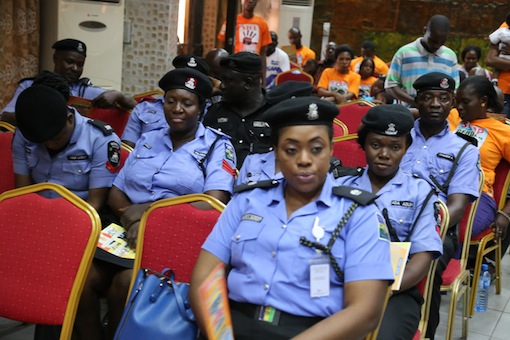News
Nigeria improves on gender equality — Report

Nigeria has recorded a marginal improvement in gender equality, the World Economic Forum has said in its latest report.
In 2018, Nigeria ranked 133 among 149 countries surveyed for gender gap reduction by WEF. In the 2020 report, released last week, Nigeria rose to 128 out of 153 countries.
The report said Nigeria was amongst the countries with the most improved performance on economic participation and opportunity gender parity.
In Africa, Cape Verde, Mali, and Sierra Leone are also in the most improved category.
“Nigeria closed 73.8% of its economic participation and opportunity gender gap to date, it ranks 38th globally,” the report said.
This means the gap between men and women who are actively participating in the labour force is closing up.
However, despite Nigeria’s improvement, literacy rates are low and “skewed in the favor of men”, it said.
When compared to other countries in the index, the participation of women in formal education is relatively low in Nigeria.
“58% of girls are in primary school, while 47% of that percentage go to secondary school, and only 8.3% go to university,” the WEF report said.
Nigeria also ranks low in political empowerment, scoring 149 out of 153. Only 3.4% of women in Nigeria are parliamentarians and 8% are ministers.
From the WEF ranking, Nigeria is ahead of 10 other African countries.
They are Burkina Faso (129), Algeria (132), Egypt (134), Gambia (136), Mali (139), Togo (140), Mauritania (141), Cote d’Ivoire (142), Morocco (143), Chad (147), and Democratic Republic of Congo (149).
Those who performed ahead of Nigeria are Rwanda (9), South Africa (17), Burundi (32), Zambia (45), Zimbabwe (47), and Ghana (107).
The 10 most gender-equal countries in the world are Iceland, Norway, Finland, Sweden, Nicaragua, New Zealand, Ireland, Spain, Rwanda and Germany.
The WEF said based on this year’s report “gender parity will not be attained for 99.5 years”, meaning that “none of us, and not likely will many of our children see gender parity.”
A gender activist, and founder of SheNation, Evangeline Dan-Yusuf, said the report largely reflected the situation in Nigeria.
“As a woman in the labour field I can definitely testify to some progress made,” she said
Nevertheless, she said Nigeria is still far away from where it ought to be.
Ms. Dan-Yusuf said celebrating the progress may lead to complacency.
“If education (both formal and informal) in Nigeria is not gotten right we will have children growing up with the sense of inequality from childhood to adulthood and that sort of mindset will regress efforts made to ensure the gender gap is closed,” she said.
On how to further close the gap, she said “it will take all of us to attempt at shortening the distance of this gap; it will take decisive governmental measures including laws and enforced policies to ensure we begin work on closing this gap; it also means involving our private stakeholders to enforce these policies in their establishments; and it involves every Nigerian ensuring the right description of gender is taught in households.
“This is the work of an all man army and there is a role for everyone in the squad,” she said.
-
Society News4 years ago
Jamaican man beheads wife after finding out their 6 kids are not his
-
Society News6 years ago
EXCLUSIVE: The Complete Story of Dolapo Awosika, John Fashanu and Prophet Kasali Sex Mess
-
News4 years ago
Pastor Osagie Ize-Iyamu, His Membership Of Secret Cult, And Other Issues Touching On His Public Credentials Examined by Barr. PATRICK I. BIOSE
-
News4 years ago
BREAKING: Ajimobi’s daughter-in-law blast Gov. Makinde, says gov can’t surpass ex-Oyo gov
-
News4 years ago
BREAKING: 2 arrested as NAF begins investigations into Tolulope’s death
-
Crime5 years ago
Exclusive: Female Aide Fingered In Oko Oloyun’s Murder + Banking Transactions That Nailed Husband
-
News4 years ago
BREAKING: Police take over Edo House of Assembly as APC, Oshiomhole move to seize control
-
Society News5 years ago
The Rise and Fall of “Jumoke The Bread Seller”
You must be logged in to post a comment Login